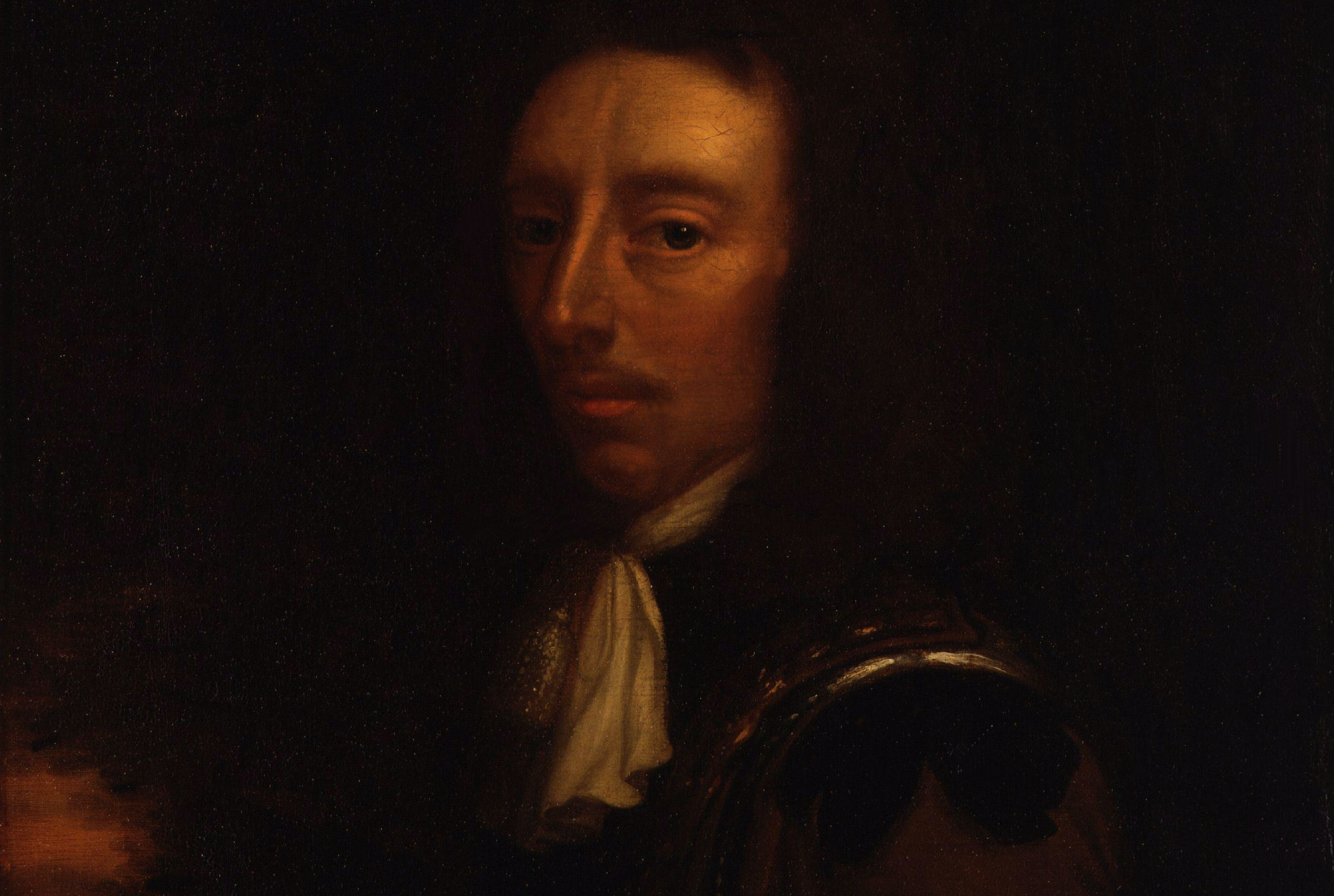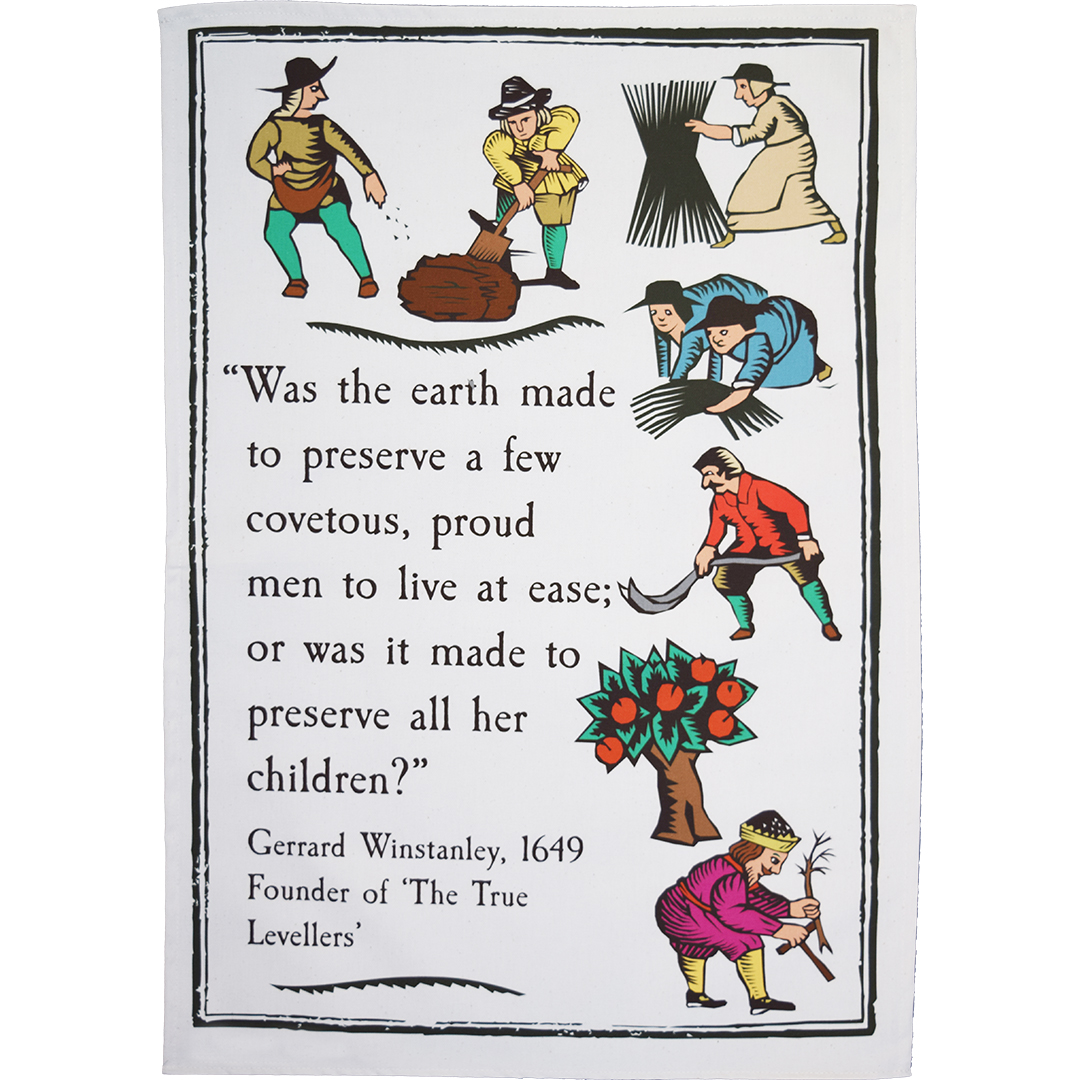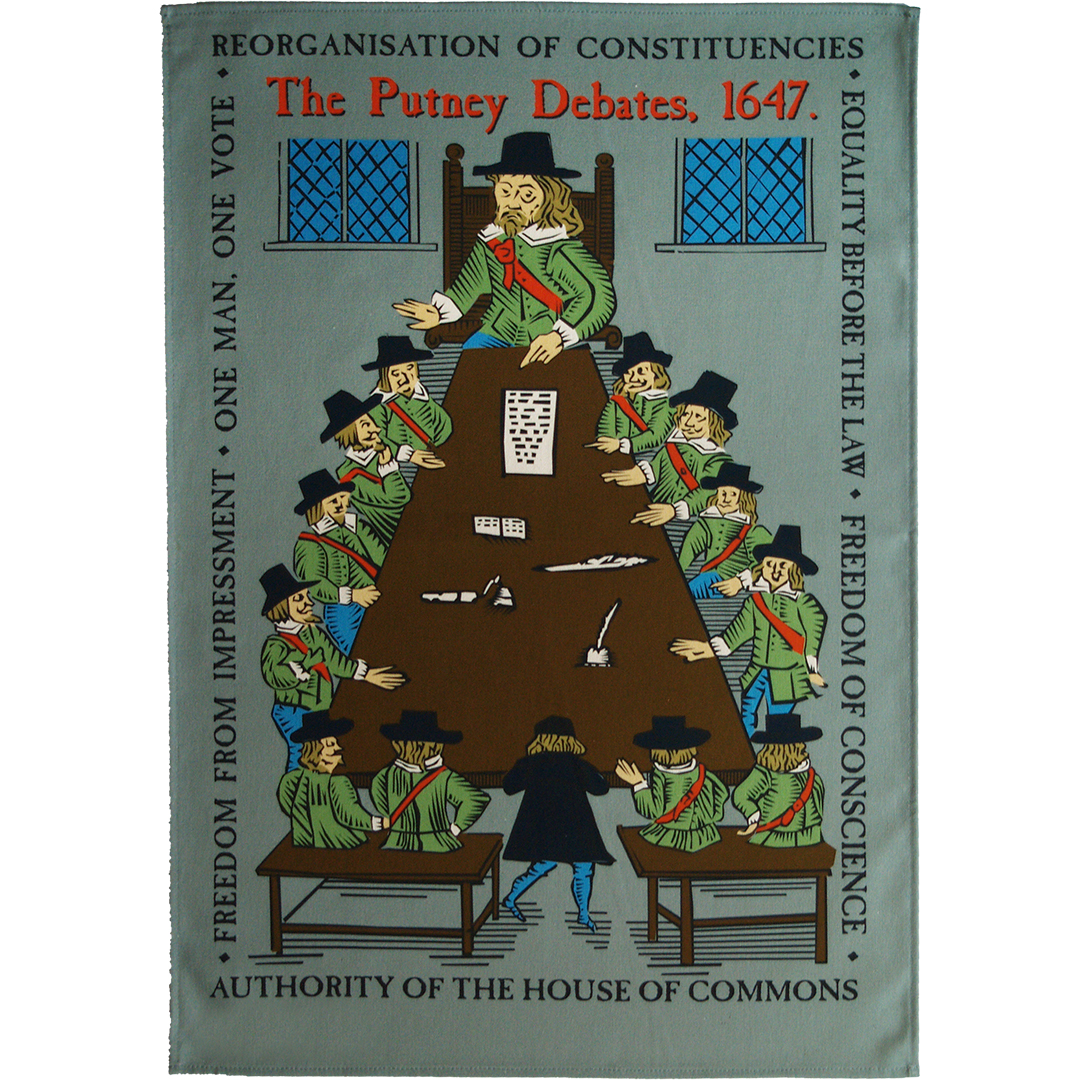Enemy to Tyrants: The Life of Algernon Sidney
Posted by Pete on 15th Jan 2023

Born on this day, Algernon Sidney was one of England's greatest revolutionaries
“This hand, enemy to tyrants, by the sword seeks peace with liberty.”
The second half of the seventeenth century was the great revolutionary period of British history.
The popular struggle against King Charles I and the founding of an English Republic created a context in which radical democratic thought could flourish.
The
Levellers, the Diggers, the Putney Debates. It was an English Revolution.
And no account of that Revolution can do without one Algernon Sidney, born today in 1623.
The 1640s were a time of great radical change in England, with groups like the True Levellers trying to take back enclosed land
Click to view our True Levellers tea towel
Sidney didn’t have the family background of a radical republican. His father was the Earl of Leicester, and his maternal grandfather was the Earl of Northumberland.
But revolutions almost always involve the occasional aristocrat.
When war broke out between Parliament and King Charles I in 1642, Sidney joined up with the Parliamentarians.
He fought courageously at the Battle of Marston Moor, before being forced to quit the army due to ill-health.
But there were other ways to serve the revolution. In 1645, Sidney was elected as an MP for Cardiff.
In the ‘Long Parliament’ of the 1640s, he vociferously opposed any compromise with Charles.
The King had to be made to submit to Parliament. Only that way could a truly constitutional government be built in England.
The 1640s were also a time when people publicly discussed the nature of democracy and equality, as in the 1647 Putney Debates
Click to view our Putney Debates tea towel
Once Charles’ armies were defeated, the King was charged with treason and tyranny, and put on trial in Westminster.
Sidney was a Commissioner in the trial, and initially opposed the decision to execute the King in 1649.
Afterward, though, Sidney reconsidered. He reflected that the execution of Charles, as the execution of a tyrant, was:
“the justest and bravest act that ever was done in England, or anywhere.”
With Charles’ death, Parliament dissolved the English monarchy and created a republican “Commonwealth” in its place.
Sidney was an enthusiastic supporter of the project and the ideals upon which it was built. But that didn’t make him a lackey of the men running the new government.
In fact, he was one of the leading critics of Oliver Cromwell, the so-called “Lord Protector”. He saw Cromwell as a would-be tyrant.
And when Cromwell's thugs invaded Parliament in 1653 to stop it passing laws which called for a freer electoral system, Sidney refused to leave.
A few years later, when Cromwell died and the Commonwealth collapsed, Sidney was abroad in Europe. Parliament invited Charles’ son to rule a restored monarchy as King Charles II.
Still in Europe at this point, Sidney was effectively exiled.

Algernon Sidney wasn't just a politician - he was also a globally influential political theorist
He might have been let back in to the country if he had just renounced the republic, but he wouldn’t do it.
If anything, Sidney became more republican.
“…as death is the greatest evil that can befall a person, a monarchy is the worst evil that can befall a nation.”
Sidney spent most of the next two decades travelling Europe, trying to drum up support in the Netherlands and France for an armed expedition to overthrow Charles II and re-establish the Commonwealth.
Sadly, his efforts came to nothing, and in 1677 he returned to England alone.
His situation was precarious. Charles II was ruling more and more like his father. Things were getting dangerous for known “Commonwealthmen”.
In 1683, Sidney was arrested on charges of treason against the King. After a short trial by a kangaroo court, he was beheaded on 7 December.
But even in death, Algernon Sidney would continue to trouble the Kings of England.
His political ideas about republican liberty filtered down the centuries, and North American colonists like Thomas Jefferson and John Adams were inspired by his life and work.
Sidney’s
Discourses Concerning Government – which was used by the Crown to convict him – has been called the textbook of the American Revolution.
And in 1783, one hundred years after Algernon Sidney’s execution, the government of King George III begrudgingly recognised the independence of an American Republic.
Maybe Sidney had the last laugh after all.


